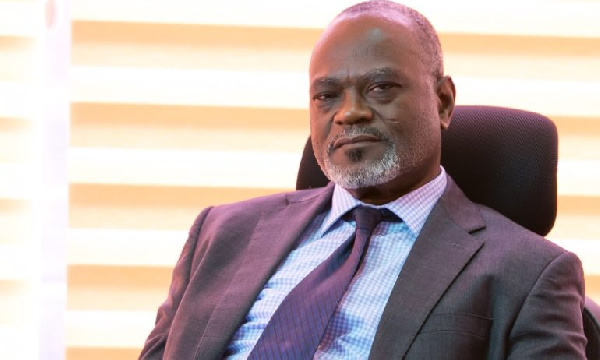
Government to roll out 8-point agenda to consolidate economic gains

The government has outlined its priorities going into the 2020 elections, with a focus on a robust eight-point agenda aimed at consolidating what it describes as numerous economic gains chalked up over the past three years.
The priorities are in the areas of domestic revenue mobilisation, which has slipped below targets in the last few years; business regulatory reforms; drive for foreign direct investments (FDIs) and enhanced financial support for local entrepreneurs.
Get Digital Versions of Graphic Publications by downloading Graphic NewsPlus Here. Also available in the Google Play Store and Apple App Store
The rest are the establishment of an international financial services centre; digitisation; accelerated infrastructure development and science and technology.
The Minister of Finance, Mr Ken Ofori-Atta, announced this when he laid the 2020 Budget and Economic Policies of the government before Parliament on Wednesday.
This is the fourth budget to be presented by the President Akufo-Addo-led government.
Dressed in his usual all-white apparel, the Finance Minister told the packed House: “We will make a strong push on the under-listed priorities in order to consolidate the gains achieved within the last three years and drive our economic transformation forward, in line with the President’s Consolidated Programme and the Ghana Beyond Aid vision.”
Revenue mobilisation
Mr Ofori-Atta said, for instance, that under domestic revenue mobilisation, the government ‘will take radical policy and institutional reforms towards raising our tax-to-GDP ratio over the medium term from under 13 per cent currently to around 20 per cent’.
Today's Ghana news headlines
For latest news in Ghana, visit Graphic Online news headlines page Ghana news page
He said the focus would be on efficiency and base-broadening, rather than imposing new taxes on the people and businesses.
That way, the minister said, it would help raise ‘our domestic contribution to our ambitious transformation agenda, in line with the Ghana Beyond Aid vision’.
Business regulatory reforms
In the area of business regulatory reforms, he said the three-year reform initiative, coordinated by the Ministry of Trade and Industry, would be implemented to make the country one of the most transparently and efficiently regulated business environments in Africa.
“This will empower our local businesses and also help us realise our ambition of making Ghana the gateway to business in West Africa.
“We need higher amounts of external private capital to complement government resources in driving our transformation. So we will aggressively go after FDI,” Mr Ofori-Atta said.
He said the Ghana Investment Promotion Centre (GIPC) would be well resourced with both human and financial capital to pursue that agenda.
“In addition, the government has established an Inter-Ministerial Committee to provide coordinated policy guidance and support for the FDI drive,” the minister added.
Support for local enterprises
On enhanced financial support for local entrepreneurs, Mr Ofori-Atta said the ‘government will deploy, early in 2020, a number of initiatives to enhance access of businesses to finance, including medium and long-term capital’.
“These include the new National Development Bank, the Ghana Incentives-based Risk Sharing System for Agricultural Lending (GIRSAL), the Ghana Commodity Exchange, and a strengthened Venture Capital Trust Fund,” he added.
The minister also said work was progressing steadily to realise the government’s vision of establishing Ghana as a regional financial services centre in West Africa.
“The concept note has been approved by the government and work is ongoing to draft an International Financial Services (IFS) Bill for broader stakeholder consultations,” he further stated.
Digitisation
On digitisation, the minister said the government aimed to use digitisation to transform the country’s development path in line with the global realities of the Fourth Industrial Revolution.
“We will continue the impressive achievements made over the last three years in using digitisation to improve government services and make them more accessible to Ghanaians.
“We will also intensify efforts to support the development of Fintech (Financial Technology) and knowledge economy in Ghana,” he added.
According to him, the government would also accelerate financing for infrastructure by actively leveraging innovative sources of finance.
“To this end, we are strengthening the capacity of the Ghana Infrastructure Investment Fund (GIIF) to tap into global financial markets, including blended finance and sovereign wealth funds,” the minister further stated.
Mr Ofori-Atta noted that the foundation for industrialisation was science and technology, as a result of which the government had resolved to complement its advances in human capital in the education sector with a focused push to develop national technological capability.
“To this end, the government, through the Ministry of Environment, Science, Technology and Innovation (MESTI), will establish a Ghana Design and Manufacturing Centre (GDMC),” he said.
According to the minister, the centre of excellence would facilitate the incubation of new technological industries and also serve as resource for national research institutions and private industry.
Elections
“Mr Speaker, 2020 is an election year. I would like to take this opportunity to inform this august House, on behalf of the President, that all the needed resources required shall be marshalled for the Electoral Commission to ensure that we have credible, free and fair elections,” he said.
Mr Ofori-Atta said Ghana remained one of the most stable and peaceful countries in the world, adding: “We intend to maintain it that way.”
Source: ghanaweb.com






